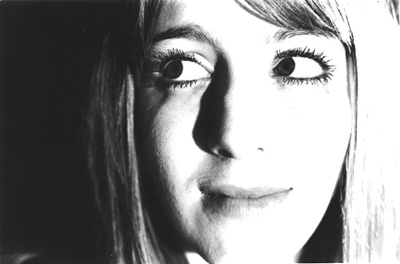All Nonfiction
- Bullying
- Books
- Academic
- Author Interviews
- Celebrity interviews
- College Articles
- College Essays
- Educator of the Year
- Heroes
- Interviews
- Memoir
- Personal Experience
- Sports
- Travel & Culture
All Opinions
- Bullying
- Current Events / Politics
- Discrimination
- Drugs / Alcohol / Smoking
- Entertainment / Celebrities
- Environment
- Love / Relationships
- Movies / Music / TV
- Pop Culture / Trends
- School / College
- Social Issues / Civics
- Spirituality / Religion
- Sports / Hobbies
All Hot Topics
- Bullying
- Community Service
- Environment
- Health
- Letters to the Editor
- Pride & Prejudice
- What Matters
- Back
Summer Guide
- Program Links
- Program Reviews
- Back
College Guide
- College Links
- College Reviews
- College Essays
- College Articles
- Back
The Tyrant's Daughter by J.C. Carleson
J.C. Carleson created a fictionalized account of true events to tell the story of a fifteen year old girl named Laila. Her father is the king of a Middle Eastern country, where her family lives in luxury obtained by their royal palace. Laila’s life is pretty good considering her living conditions. The palace is beautiful, she gets her own tutors, and she is protected by guards. However, things get pretty ugly when a brutal assassination forces Laila, her mother, and her little brother to flee their country, and take refuge in Washington D.C. This is tough on Laila because the American lifestyle is completely opposite from her own, like night and day. The clothing is different, schools are different, and definitely the interactions between boys and girls are way different. Laila is also discovering new things about her father; he was a dictator, not a king, which comes as a shock for Laila. Now Laila has to get used to the fact that her father was a brutal dictator and has to get used to this new lifestyle. All of this makes her feel like she is submerged under water. Everything is blurry, weird, and hard to understand.
After reading this book, I asked, “Is it fair to judge someone based on what one of their family members has done?” This happened a lot in the book. Laila got judged by someone very harshly, but the sad thing is that she had no part in the action whatsoever. Her father is the one that did it. Because of this, I think judgement is one of the themes in this story. This book also gives a good perspective of another culture. I learned new aspects about Laila’s culture, some that I found interesting. I think the author did a good job giving a new perspective of a different culture for this book.
When I first picked this book to read, I was not too enthusiastic about it. I did not know what to expect from it. I did not know if I would like it. However, after reading it, I actually really enjoyed reading it. Even though I was a guy reading a story with a female protagonist, it was still a great story to read. I thought the ending was shocking because it was something I did not expect. I would definitely recommend this book to anyone. This book is really an eye-opener. Americans judge things a lot and criticize a lot of things as well. A lot of Americans judge Muslims as being bad and associate all Muslims with terrorism. That is just simply not true. I think the author wanted this book to give the other side of the coin, tell the other story. About how someone else judges us, not us judging them. Again, I really enjoyed this book, and if I liked this book, I’m sure that anyone else will enjoy this book too.

Similar Articles
JOIN THE DISCUSSION
This article has 0 comments.
